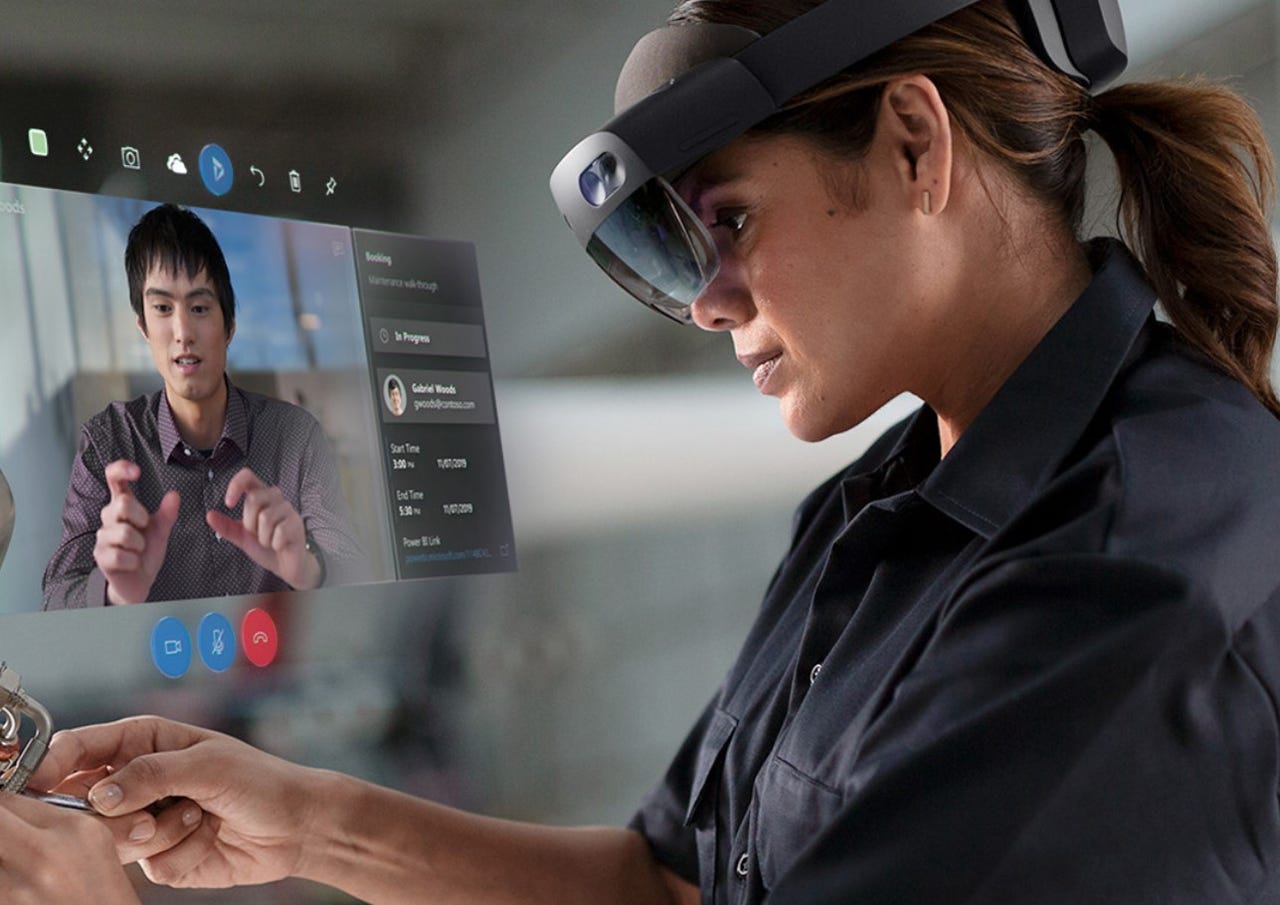































 Credit: Microsoft
Credit: Microsoft Microsoft watchers often cite the phrase 'the third time's the charm' in explaining how long it takes the company to turn a not-so-great first version of a product into something fairly solid. I wonder if Microsoft is about to put an end to that saying, given a couple of new reports this week about HoloLens 3 and Surface Duo 3.
Business Insider says the HoloLens 3 was cancelled in mid-2021 (and, rather tellingly, no one seemingly noticed until now), resulting in Microsoft's metaverse strategy falling into disarray. Windows Central's Zac Bowden, who has had an excellent Duo rumor record, says the third iteration of Microsoft's Android-based Surface Duo may not arrive this year, as many were expecting.
My take: If true, neither of these delays are necessarily bad news. When products aren't living up to expectations, it's not a bad time to pause and regroup instead of continuing to throw features and strategies at a wall and hope something sticks.
First, let's talk HoloLens. If the latest iteration of Microsoft's augmented reality glasses was cancelled/postponed last year as reported, it isn't the first time in HoloLens' history that this has happened. In 2017, Microsoft decided to skip the version of the product that was due to debut that year (called HoloLens 2) and go straight to version 3. When the product branded "HoloLens 2" finally shipped in 2019, it included some much-needed improvements in the hardware and software.
Microsoft originally positioned HoloLens as suited to both enterprise and consumer tasks but quickly realized the financial hopes for the device were firmly rooted in the enterprise. Alex Kipman, Microsoft Technical Fellow for AI and Mixed Reality and the father of the HoloLens, continues to fuel the idea that the HoloLens has a big consumer future in his interviews and presentations. But$22 billion contracts -- like the delayed one that Microsoft has for headsets for the U.S. Army that's based on HoloLens technology -- are where Microsoft correctly has focused its HoloLens strategy.
Even as Microsoft builds up its gaming side of the house, HoloLens hasn't figured into the consumer picture. No doubt that's been frustrating to some employees who are more interested in consumer than enterprise. Is that why hundreds of Microsoft employees have quit to work for Meta and other companies doing work on bringing AR/VR/XR to consumers? Maybe. I hear crazy competitive salaries and frustrations working for Kipman, a visionary who may not be the best at managing and collaborating with others, may be equally or more the reasons.
As to claims that Microsoft's "metaverse strategy" is in disarray due to HoloLens team tensions, I say, as I do about the metaverse all-up, that this is a lot of hoo-ha. (Achievement unlocked: Used hoo-ha in a story.)
HoloLens figures into Microsoft's "metaverse" strategy in a tangential way right now. Microsoft officials have been equating the metaverse with digital representations of physical entities and are working to figure out how to cash in on the community/collaboration aspect of this future. While Microsoft is dabbling in things like avatars in Teams via Microsoft Mesh, the real centerpiece of its metaverse strategy is digital twins, not a gaming headset.
A Microsoft company spokesperson's comment on the report about HoloLens 3, for what it's worth: "Microsoft HoloLens remains a critical part of our plans for emerging categories like mixed reality and the metaverse. We remain committed to HoloLens and future HoloLens development."
Meanwhile, in Surface Duo land, Microsoft is scrambling to fix another product that hasn't lived up to expectations. Yes, there are some who believe, as Microsoft officials seem to, that two phone screens connected with a hinge are better than one. I bought a Surface Duo 2 last fall with the intention of reviewing it. I sent it back because I found the software experience to still be too confusing and unstable to even try. The Duo hardware feels premium and Android is the right choice for Microsoft for a mobile device, but the Duo is definitely not worth$1,500 (or even$500, in my opinion).
Will switching to Android 12L fix anything on the Duo front? I'm not sure. I still feel like Microsoft needs to try to define a new category with this kind of product instead of try to shoehorn it into the phone space, especially as the camera experience remains unwieldy and the hinge just gets in the way.
If Microsoft really is slowing down instead of hurtling forward with the HoloLens and the Duo, I say bravo. Neither device is where it should be, in terms of user experience and both need work before their next iterations go on sale.
 Tags quentes :
Inovação
Tags quentes :
Inovação